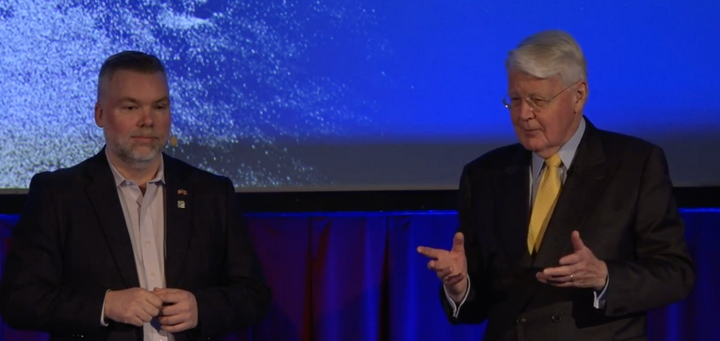The team is the key: What do Icelandic investors look for in entrepreneurs?

The team is the most important factor when deciding whether to invest or not, at least according to Reykjavik University students Selma Rún Friðjónsdóttir and Tryggvi Björn Guðbjörnsson who recently published their Business Administration thesis focused on influencing factors and decision making processes for Icelandic venture capital funds and angel investors. You can read the entire thing in Icelandic here.
“We are both interested in startups and venture capital, so investigating that made sense for our thesis,” Selma told Northstack. “As we were casually chatting about the startup scene in Iceland we found out that not a lot of research had been done on Icelandic startup investors and what matters to them when they’re picking their investments.”
And the top-line of their results is that both angel investors and VC investors say they put the team above everything else when evaluating opportunities, and that the team needs to be diverse.
The study, which was part of Selma’s and Tryggvi’s bachelor studies, was based on nine in-depth interviews with angel investors and venture capitalists. And although the number of interviews might be low, in context with the total number of venture capitalists in Iceland (less than 20) and angel investors (probably fewer than 200), the duo interviewed a decent sample.
Their findings suggest that Icelandic investors are driven not only by profit, but also by an interest in the subject (tech and innovation), the importance of innovation for Iceland, and the potential good they can do for society.
Based on their findings, Selma and Tryggvi wrote up some tips for founders planning to meet with investors. Read on to see them.
What matters to investors?
The startup business is all about people and risk management. To be able to make a good idea great, you need the right people. This is why all of the investors said that the biggest focus factor when figuring out whether to invest or not, is not the idea itself but the people with the idea. The research shows that both angel and VC investors place equal emphasis on the entrepreneur or the team itself and everyone said the team has to be diverse. It is also interesting to mention that angel investors place more emphasis on knowledge and experience while VC investors emphasize more on the entrepreneur’s or the team’s passion.
With that being said, what can the founder do to increase the likelihood of an investment?
Meeting the Icelandic angel investor:
Being well prepared for the pitch meeting is a critical factor. Angel investors want to see that you know what you are doing. Trust means everything because they are investing their own money and time. Entrepreneurs need to be able to convince the angel that they are the person that can take this idea all the way and profit from it. This is why conviction and reliability go a long way. Angels need to be excited about the idea themselves but in the end, they go with their gut feeling.
There is an upside for angel investors because they are not investing other people’s money. This could be why they can use their gut feeling and why their research is not as significant compared to VC investors. They want to see some analysis of the competition, cost and sales and their due diligence is more personal and less detailed than VC due diligence. Of course, it is always good to have more material but be sure that it is reliable.
Meeting the Icelandic VC investor:
Preparation for the pitch meeting is of course a key factor. There are different things to put emphasis on, compared to an angel investor. You might want to make sure that the group of people you have gathered are passionate about the product or service you are offering. Any weakness in the team is very repellent for the VC investor.
The VC investor is very eager to help out if the context is right. The market for the product or service needs to be well defined and the product has to be more developed for VC’s than for angels. The due diligence that VC’s conduct is rigorous and takes time but the fund has to be sure about everything they can be sure about before they are ready to fund your startup. Let’s be fair, VC’s have beneficiaries that fund their investments, while angels invest their own money. Of course, then they have more incentive to have everything in order.
A lot of due diligence has to be made before the VC investor is ready to fund your startup. Your product definitely needs to have scalability, so much so that you’re going to conquer the world’s market. Well at least that’s the end goal, right?
Key differences between VC and Angel investors
| VC Investors | Angel Investors |
| The team is key | The team is key |
| The entrepreneur’s passion and experience are key | The entrepreneur’s knowledge and experience are key |
| The idea needs to be scalable, usually worldwide | They need to be personally interested in the idea |
| Have clear work processes | Go with their gut |
| Do more market due diligence | Do less market due diligence |
| Are eager to help as much as possible (after investment) | Help when they can (after investment) |
| Are similar to VC investors abroad, maybe even more active | Are more passive than angels abroad |




